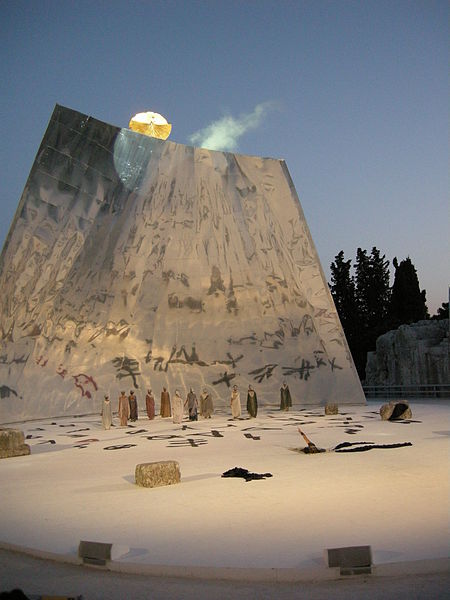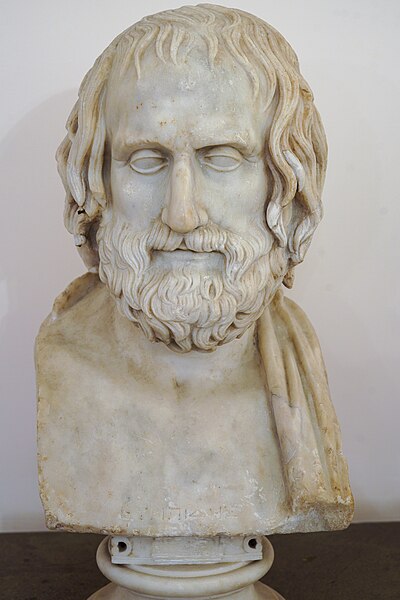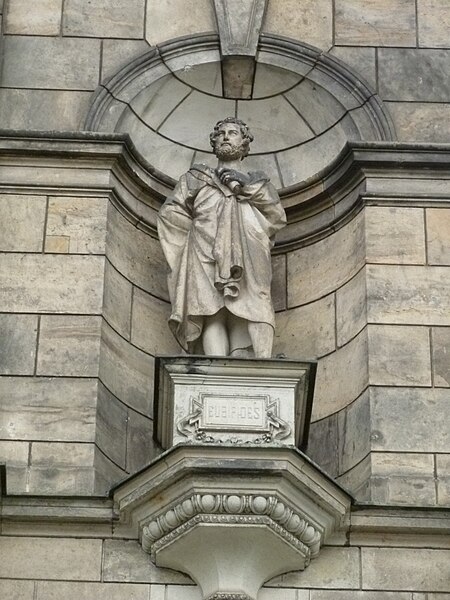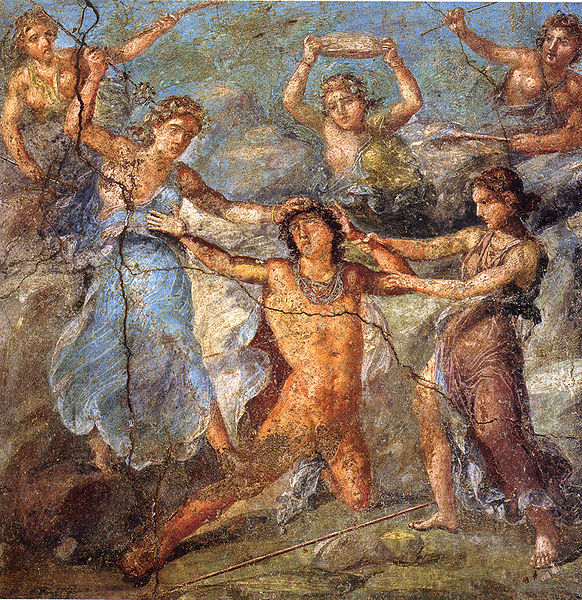Deus ex machina is a plot device whereby a seemingly unsolvable problem in a story is suddenly or abruptly resolved by an unexpected and unlikely occurrence. Its function is generally to resolve an otherwise irresolvable plot situation, to surprise the audience, to bring the tale to a happy ending or act as a comedic device.
Deus ex machina in Euripides' Medea, performed in 2009 in Syracuse, Italy; the sun god sends a golden chariot to rescue Medea.
Characters ascend into heaven to become gods at the end of the 1650 play Andromède.
Euripides was a tragedian of classical Athens. Along with Aeschylus and Sophocles, he is one of the three ancient Greek tragedians for whom any plays have survived in full. Some ancient scholars attributed ninety-five plays to him, but the Suda says it was ninety-two at most. Of these, eighteen or nineteen have survived more or less complete. There are many fragments of most of his other plays. More of his plays have survived intact than those of Aeschylus and Sophocles together, partly because his popularity grew as theirs declined—he became, in the Hellenistic Age, a cornerstone of ancient literary education, along with Homer, Demosthenes, and Menander.
Bust of Euripides
2nd century AD statue of Euripides, Louvre, Paris
19th century statue of Euripides in a niche on the Semperoper, Germany
Ancient Roman wall painting from House of the Vettii in Pompeii, showing the death of Pentheus, as portrayed in Euripides's Bacchae






